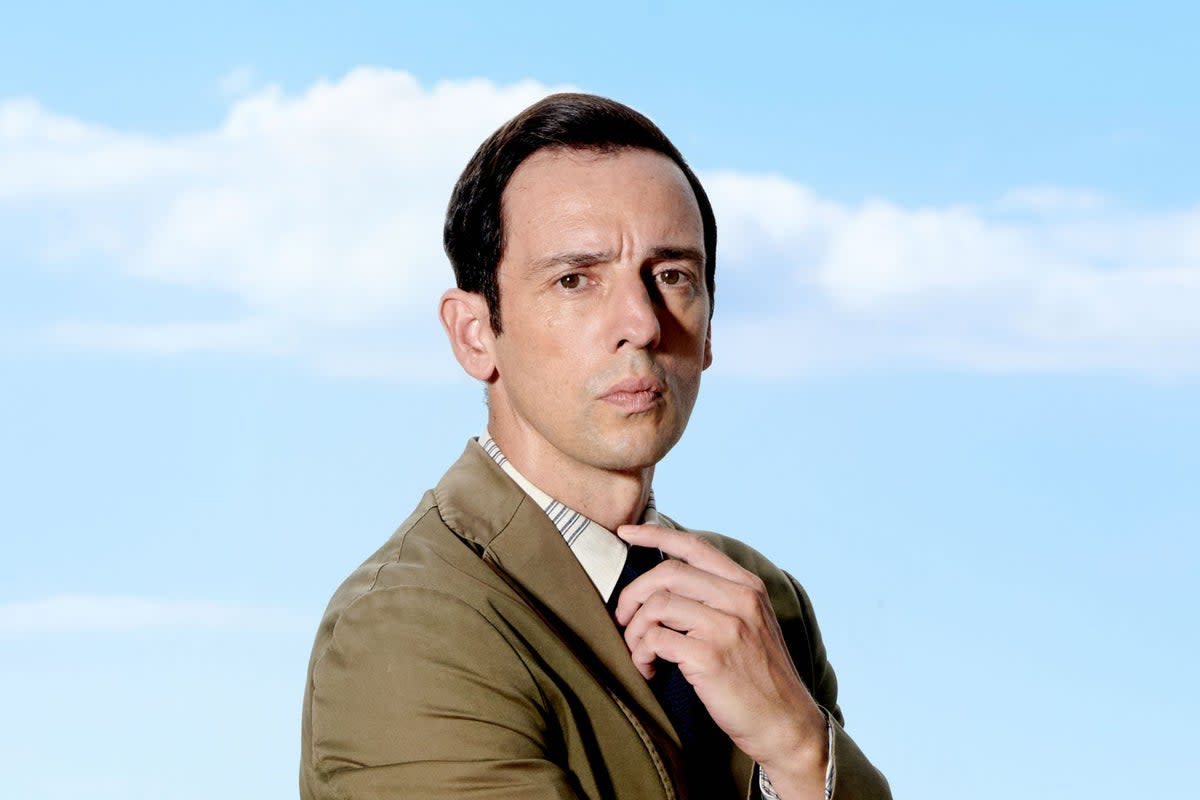Why is Death in Paradise one of the most watched shows on television?

When a series such as Death in Paradise becomes a phenomenon, no one knows quite how to react. The Caribbean-set detective drama – currently midway through its 13th series on BBC One – has none of the hallmarks of what we think of as a contemporary TV crime drama. This is no True Detective or Line of Duty. There is no jaded detective haunted by his past. No fraught political intrigue. No mazy, serialised story. What we do have is one jolly copper solving a different whimsical crime each week. And yet Death in Paradise was the sixth most-watched programme of 2023, and the second-most-watched fiction series behind Happy Valley.
The series follows quirky British DI Neville Parker (Ralf Little), who moves to the fictional island of Saint Marie (actually Guadeloupe) to work with a cohort of local cops. It’s a procedural, the kind of TV show everyone complains isn’t produced any more. Most every episode follows a fairly rigid boilerplate, as Parker and co fish their way through a pond of red herrings before circuitously identifying the crook, and the motive. As a premise, it’s already proven unusually resilient, with the series surviving the exit of its lead actor not once, but thrice – Little follows in the shoes of Ben Miller, Kris Marshall and Ardal O’Hanlon. As a work of dramatic fiction, Death in Paradise is a solidly unspectacular affair: the writing is simple and repetitive to a fault, the acting broad and stilted. But there’s got to be a reason people keep coming back in their millions.
To some extent, Death in Paradise is “comfort TV” pushed to its logical extreme. The balmy setting, shot without any real flair or sophistication, nonetheless evokes the kind of loose, sweaty sense of being on a tropical holiday – a selling point that’s worked wonders for shows such as Benidorm and the ITV reality series Love Island. The fact that many of Death in Paradise’s writers came from the world of soap operas is evident in the final product. It might share Coronation Street or EastEnders’, shall we say, loose approach to verisimilitude, but also clearly has the same see-you-next-episode knack of ingratiating itself into viewers’ routines.
It’s not like Death in Paradise is some kind of aberration. Think of Martin Clunes’s twee medical series Doc Martin, which stayed on the air for 18 years before coming to an end in 2022. At its peak, it was seen by 10.6 million people; even its final series, when numbers had dwindled to around half this, would be considered a win by most metrics. This was another series that coasted by on a kind of genial middlebrow affability – another testament to the appeal of the inoffensive.
As a less flattering comparison, we have Mrs Brown’s Boys, the BBC’s execrable cross-dressing throwback sitcom, which received nothing but opprobrium throughout its 13 years on the air. Created by Irish comedian Brendan O’Carroll, the series still returns each Christmas, undaunted, to huge viewing figures – a lingering and paradigm-shaking reminder of the gulf between the sort of TV that “leads the conversation”, and the broadcasts that millions of Brits actually opt to watch.
This is also not a uniquely British phenomenon. In the US, there’s a similarly marked divide between the actual most-watched series – shows such as NCIS, FBI, Chicago Fire and Blue Bloods – and the so-called hits that dominate the conversation. (Shows like Succession, The White Lotus, The Bear are all some distance off these limp procedural-type shows when it comes to audience figures but, of course, you would never know that by reading most of the press.) Part of this is to do with access: the aforementioned shlocky hits are all available on the basic terrestrial networks – another thing that Death in Paradise has going for it.
There are more faults to be found with Death in Paradise than just the aesthetic, mind you. Several critics have pointed out the troubling racial undertones of Death in Paradise: the optics of a white British copper being sent to a colonial island to show some markedly less competent foreign officers how it’s done are obviously not great. It may be a sign of just how ingrained our country’s noxious love of empire remains – or, more likely, people just aren’t reading into it that thoroughly.
Ultimately, Death in Paradise will be framed as an unmitigated success story. Eight million people can’t be wrong. They’ll keep churning out more episodes for years to come, I’m sure – and why shouldn’t they? Death in Paradise is just giving people what they want. Whether we should be wanting a little more is another matter.
‘Death in Paradise’ is available to stream now on iPlayer, with new episodes airing on BBC One at 9pm on Sunday

 Yahoo News
Yahoo News 
